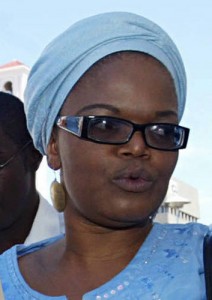That’s what I thought as an HR lawyer and that’s what I think to this day. Why phooey? My thoughts:
It’s a perfect opportunity to sandbag employees you supervise. Rather than giving them feedback and coaching during the appraisal period, the supervisor waits until the annual review to critique an employee’s performance. Instead of helping employees improve, a disappointing annual review — or what I call a “sandbag” review — only exacerbates performance issues and creates hard feelings.
Lawyers aren’t any different than other employers. They wish problem employees would just magically disappear. However, as many employers have learned to their dismay, that usually doesn’t happen and, if it does, it’s often accompanied by a severance agreement.
Even if a performance evaluation is more frequent than annually, that doesn’t necessarily solve the problem. The employee and the employer (supervisor, manager, whatever the title) disagree about what the performance issues are and how to resolve them. Merely giving the employee a “PIP” (Performance Improvement Plan) doesn’t mean a thing. It’s the coaching and the mentoring to improve performance, rather than merely discussing the plan (if there is even any discussion), asking the employee to sign it, and returning it to the HR Department.
What are performance deficiencies? One of the biggest ones for lawyers is, of course, billable hours. How about insufficient client development? Not “up to snuff” work product, inability to get along with colleagues, and there’s always the “just doesn’t fit in” ever popular “round peg in square hole” fallback?
Often, it’s “up or out,” bill more hours or you’re toast. Bring in more clients, or at least a client or two. Polish up that work product, and be kind and respectful of colleagues, especially support staff. You either improve forthwith or you’re gone, and in today’s “eat what you kill” environment, those seem to be the choices.
Not a very pleasant “either/or” but one that many lawyers face, whether as newbies or as whatever career stage they are in. It’s never too late to show a colleague the door, and the psychic, reputational, financial devastation may never be completely alleviated.
Spending time writing and then administering performance evaluations is never fun. There are more than half a million samples (who knew?) of language to use in writing them and in responding to them. One need never be at a loss for words, not that we ever are.
Even if it’s a good evaluation, but not quite as good as previous ones, there’s still pushback. The supervisor is different from the prior one and decides to evaluate on “a curve.” Employees who previously received stellar evaluations now receive ones that are merely “meh.” Affected employees are knocked back on their heels. “The goal posts have moved,” which is often the refrain as the explanation for the downgrade, the unstated goal of that supervisor to manage that employee out.
Since in most, if not all, cases, writing and discussing performance evaluations are not considered billable time, they often go to the bottom of the to-do pile unless human resources gets on the case. Even then, the task falls by the wayside.
Whatever supervisors may think about their direct reports, they owe them the courtesy and candor of performance evaluations provided on a timely basis. Some supervisors may disagree. Disagree to your heart’s content, but when it’s time to terminate an employee for poor performance or other metric, and there’s nothing in the file to support the termination request, it’s not a pretty picture.
When an employee protests the evaluation and writes a response, too often the response is just made part of the employee record, without any evaluation as to whether the employee’s complaints may be justified or meritless.
Humans are pains in the butts. How many times have we thought or said to each other that the practice of law would be fun without the clients? Too many times to count.
There are people who make good, if not great, managers, and there are others that should be only individual contributors and have no management responsibility. Managing your staff, having frequent conversations about what is working and what is not, and encouraging your subordinates to improve are definite time sucks.
Almost twenty-five years ago, Mr. I.’s supervisor wrote his evaluation, saying that “He is not an enlightened or brilliantly creative man, but with a strong board, he could absolutely do the job.” Fifteen years ago, an associate dean at the Yale School of Management said that Mr. I. was “a loyal drone” and that expectations for him were low. How cutting and what a lack of insight.
Now, in 2020, that “loyal drone,” that “not enlightened or brilliantly creative man” also known as Robert Iger, the CEO who expanded the Mouse House (aka Disney) and transformed the entire entertainment industry, has stepped down as CEO. Why do I mention him?
He is Exhibit A for why performance evaluations do not necessarily mean that one is doomed to permanent professional failure. An evaluation that is thoughtful, carefully crafted, and encouraging (let’s agree that the employee always does at least one thing well) can go a long way.
However, if the evaluation is harsh and unforgiving, then all we have to do is look at the rates of depression, addiction, and death by suicide among us to know the toll that such an evaluation can take. So, for the employee: keep going. For the employer: recognize that ability and talent can take many forms and can take time to flourish. Very few of us are overnight successes.
 Jill Switzer has been an active member of the State Bar of California for over 40 years. She remembers practicing law in a kinder, gentler time. She’s had a diverse legal career, including stints as a deputy district attorney, a solo practice, and several senior in-house gigs. She now mediates full-time, which gives her the opportunity to see dinosaurs, millennials, and those in-between interact — it’s not always civil. You can reach her by email at oldladylawyer@gmail.com.
Jill Switzer has been an active member of the State Bar of California for over 40 years. She remembers practicing law in a kinder, gentler time. She’s had a diverse legal career, including stints as a deputy district attorney, a solo practice, and several senior in-house gigs. She now mediates full-time, which gives her the opportunity to see dinosaurs, millennials, and those in-between interact — it’s not always civil. You can reach her by email at oldladylawyer@gmail.com.




 Jill Switzer has been an active member of the State Bar of California for over 40 years. She remembers practicing law in a kinder, gentler time. She’s had a diverse legal career, including stints as a deputy district attorney, a solo practice, and several senior in-house gigs. She now mediates full-time, which gives her the opportunity to see dinosaurs, millennials, and those in-between interact — it’s not always civil. You can reach her by email at
Jill Switzer has been an active member of the State Bar of California for over 40 years. She remembers practicing law in a kinder, gentler time. She’s had a diverse legal career, including stints as a deputy district attorney, a solo practice, and several senior in-house gigs. She now mediates full-time, which gives her the opportunity to see dinosaurs, millennials, and those in-between interact — it’s not always civil. You can reach her by email at 












 Kathryn Rubino is a Senior Editor at Above the Law, and host of
Kathryn Rubino is a Senior Editor at Above the Law, and host of